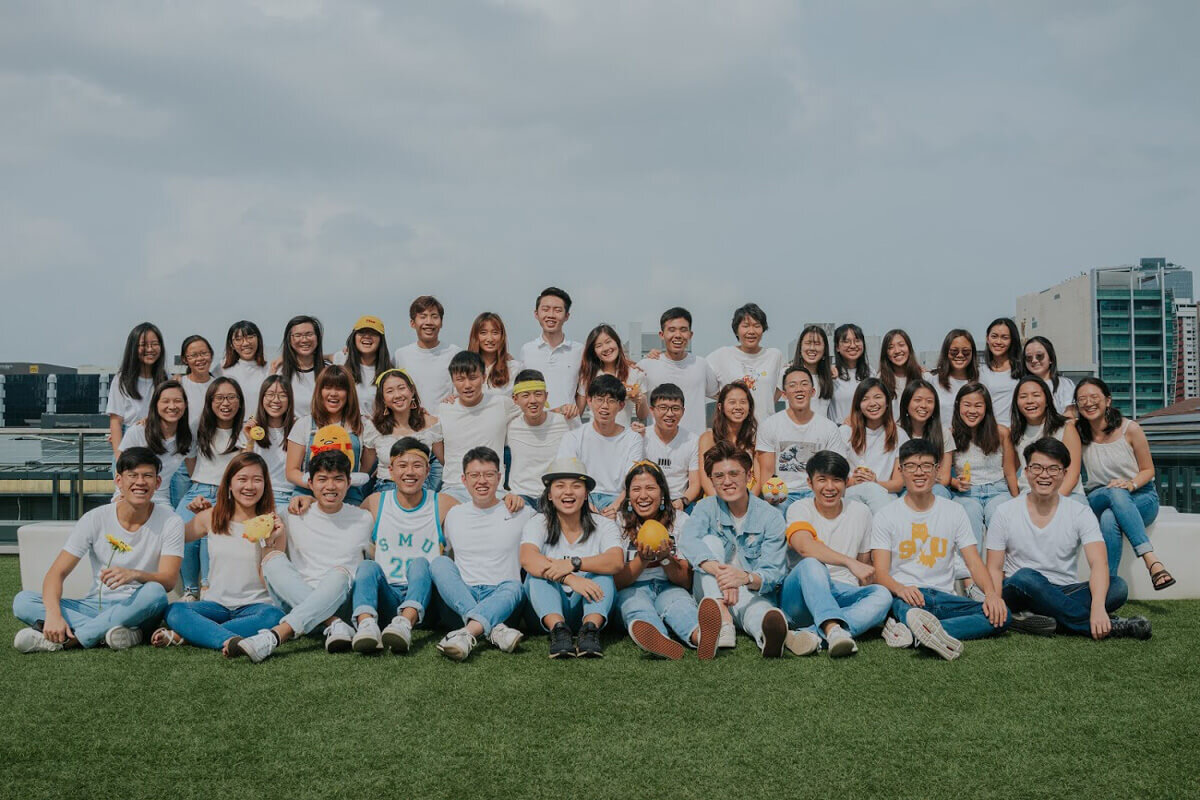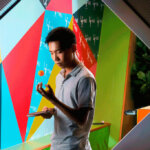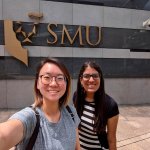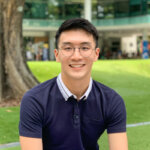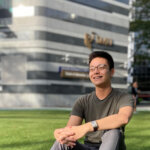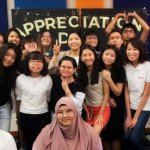By the SMU Social Media Team
Amanda Lim had some lofty goals in mind when she was planning her tertiary education. Besides a hope to excel in her area of interest, she also aimed to make a difference as part of the workforce of tomorrow.
“I strive to usher in a responsible future with my education, alongside my peers,” the Anglo-Chinese School (Independent) graduate shared, when asked why she was drawn to SMU last year. The University’s adaptability and ability to nurture students who went on to push the frontiers in various industries was very appealing to her. “Students here constantly surpass the demands of ever-shifting economies.”
Since then, she has embarked upon her double degree in Business Management and Information Systems, learnt about skills-based volunteerism through her involvement in SMU’s Conjunct Consulting chapter, and developed a deeper appreciation for the importance of soft skills. We catch up with Amanda to find out more about her freshman year.
What has it been like pursuing a double degree in Business Management and Information Systems?
I am a huge advocate of multidisciplinary learning. Fields of knowledge that may seem disparate at first are not really as mutually exclusive as they appear to be. We know that businesses are increasingly leveraging technology, and my interest is in how technology impacts businesses. In studying these two subjects, I find myself much more aware of how modern businesses conduct their operations. The two disciplines are very interlinked, and both reward an eye for detail and an affinity for logical thinking.
You are part of the first cohort to experience the new Core Curriculum. How have you found it?
What I’ve noticed is that the competencies that are developed in the core modules are often useful in multiple contexts. In other words, the skills learnt are often transferable.
For instance, I was pre-assigned Big Questions in my first semester and my professor actively encouraged us to formulate our own opinions by reading materials beyond the prescribed syllabus. That module required students to significantly leverage our own critical thinking abilities, communicate with precision and clarity, and take the initiative to do independent research. These skills have inherent utility.
You’ve said that you picked SMU because of its ability to stay adaptable, and also spoke of wanting to usher in a responsible future. How has your thinking about the values of adaptability and responsibility evolved during your time at the University?
The University remains quick to respond to pressing situations and general trends, and I remain devoted to being conscious of how my actions impact others. I think that I now appreciate that adaptability is not just about how willing someone is to metamorphosise when the situation calls for it, but that it is also about retaining core values from past experiences and adapting them so that they apply to circumstances at hand.
How have your experiences of community service facilitated by SMU impacted you personally?
I’m currently an associate consultant at SMU’s Conjunct Consulting chapter, working on a research project that evaluates the impact of board diversity on a charity’s performance. Being part of Conjunct has broadened my understanding of how an individual can give back to society.
In Conjunct, we often provide non-profit organisations with strategic advice. Skills-based volunteerism was previously a foreign concept to me, and being exposed to this kind of work has inspired me greatly. On my current project, we’re using tools of quantitative analysis to deliver insights on the non-profit sector. There are a multitude of different ways to contribute to society at large, and being part of SMU’s Conjunct Consulting society has really allowed me to appreciate that. I’m particularly grateful to the community there, as they’ve helped me in innumerable ways and I am excited to give back with Conjunct.
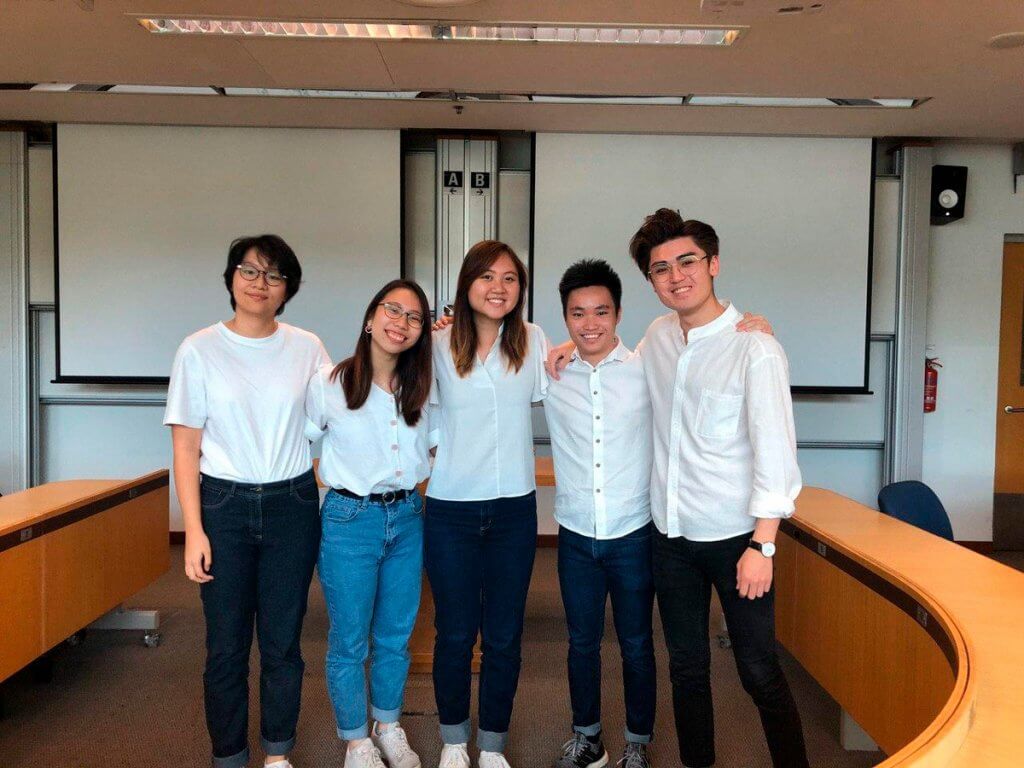
What have your experiences as a Lee Kong Chian Scholar been like?
The Lee Kong Chian Scholars’ Programme serves as a constant reminder for me to be grateful for the opportunities I’ve had. I am humbled to be a part of it. I’ve met so many great, kind and wonderful friends through the programme, who I admire deeply! Seniors and friends alike are approachable, and I can always count on them if I need advice or help.
How do you think freshman year has changed you as a person?
This year has made me double down on the acquisition of technical skills, but it’s also strengthened my appreciation of how soft skills are equally important in personal development. I’ve been awed by driven peers who already have many diverse experiences. By talking to them, I have realised that while technical knowledge is often the gateway to new opportunities, it is really how you work with others and how you learn to appreciate others that allow you to have truly meaningful experiences.
What advice would you share for students who are considering applying for a place at SMU, and for making the most of freshman year?
Before I applied to SMU, I attended events such as Open House. Understanding the pedagogies and frameworks of SMU made me aware of what I was signing up for. One of the factors that really propelled me to join SMU was that it predominantly offered seminar-style learning. Interacting with professors in that way was important to me, and it seemed easier to ask questions and clarify doubts in a more intimate seminar room rather than a massive lecture hall.
In general, I think freshmen should pursue our passions, even if that entails pushing ourselves out of our comfort zones. It’s important to engage in self-reflection too, to understand how new experiences affect us and to learn from moments of error. Being accepted into SMU is just the beginning of a long journey; by no means should it make anyone feel like it is all right to become complacent. In a lot of ways, campus culture will nudge us towards continual improvement.
Keen to take the next step with SMU? Learn more about our Bachelor of Business Management programme today.

